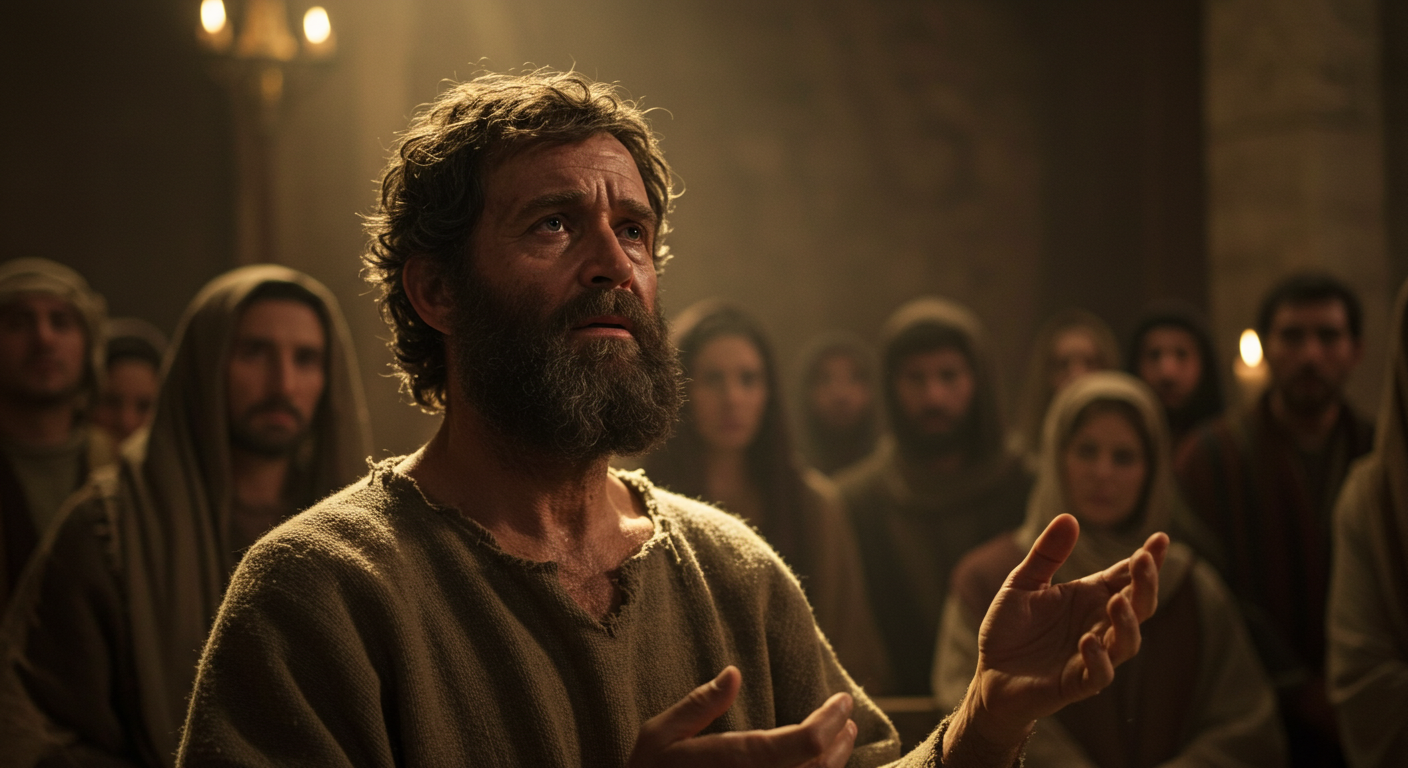Discover Peter, the Rock of the Church, through his faith, flaws, and redemption in Matthew 16:13-20 and John 21:15-19. Uncover timeless lessons on leadership.

Introduction
Peter, often referred to as the Rock of the Church, stands out as a central figure in the New Testament and was one of Jesus’ closest disciples. From humble beginnings as a fisherman, Peter’s journey was marked by profound revelations, human frailties, and unwavering faith. His experiences with Jesus, as captured in Matthew 16:13-20 and John 21:15-19, position him as both a pillar of faith and a relatable human being with strengths and weaknesses. His story has inspired countless believers and served as a foundation for the Christian faith.
Peter’s Story in the Bible
In Matthew 16:13-20, we see a defining moment in Peter’s life. Jesus poses a critical question to His disciples, asking, “Who do people say the Son of Man is?” After hearing various answers, Jesus narrows it down to them, “But what about you? Who do you say I am?” It is Peter who boldly declares, “You are the Messiah, the Son of the living God.” Jesus blesses Peter, acknowledging that this revelation came not from human understanding but from God Himself. He affirms Peter’s role as the rock upon which He will build His church, a monumental moment signifying Peter’s future leadership and responsibility.
As Peter’s story continues in John 21:15-19, the narrative takes on a more intimate and restorative dimension. Following Peter’s denial of Jesus during His trial, Jesus offers Peter a chance for redemption. By asking three times if Peter loves Him, mirroring Peter’s earlier denials, Jesus provides an opportunity for reconciliation. Each affirmative response from Peter is met with a directive from Jesus to “feed my lambs,” “take care of my sheep,” and “feed my sheep,” reinstating Peter’s role as a cornerstone in the church’s mission despite his previous failings.
Lessons from Peter’s Life
Peter’s fluctuating journey of faith and fallibility offers rich lessons. First, his recognition of Jesus as the Messiah demonstrates the importance of spiritual insight. Despite his initial lack of understanding, Peter’s faith brought him to an acknowledgment that provided a foundation for the church’s belief system. His life encourages you to seek and accept deeper spiritual truths.
Another significant lesson from Peter’s life is the theme of redemption. Even after denying Christ, Peter’s story reassures you that grace and forgiveness are available, emphasizing that past mistakes do not disqualify you from serving and fulfilling your divine purpose. His reinstatement by Jesus signifies the boundless nature of divine mercy.
Peter’s leadership also teaches the lesson of responsibility. Being named the rock of the church wasn’t just an honorary title; it was a call to serve and shepherd the emerging Christian community. His life exemplifies servant leadership, reminding you that true leadership involves humility and a commitment to caring for others.
Connection to Today’s World
In a rapidly changing world, Peter’s journey from a simple fisherman to a foundational church leader offers timeless wisdom for modern challenges. His bold confession of faith at a time of uncertainty speaks to the courage needed to stand firm in your beliefs amidst societal pressures. Peter’s transformation encourages you to welcome personal growth and embrace your potential, regardless of your starting point.
Furthermore, Peter’s narrative of failure followed by redemption is particularly relevant today. In an era where public mistakes can feel unforgivable, Peter’s story reminds you of the power of second chances. It inspires resilience, urging you to overcome setbacks and continue your journey with renewed determination and grace.
Peter’s leadership principles are crucial for contemporary dynamics, especially in various leadership roles. By prioritizing service and the welfare of others, Peter exemplifies a countercultural approach that could transform communities and organizations. His life serves as a blueprint for building inclusive, compassionate, and spiritually anchored spaces, proving that leading with love and humility remains impactful in any setting.

Key Bible Verse
A pivotal verse encapsulating Peter’s journey is found in Matthew 16:18: “And I tell you that you are Peter, and on this rock, I will build my church, and the gates of Hades will not overcome it.” This declaration by Jesus underscores Peter’s central role in the establishment of the church and signifies the enduring strength of faith that can withstand any adversity. It reflects the transformative power vested in Peter, encouraging you to see the divine purpose within.
Thought-Provoking Question
Reflecting on Peter’s life, consider this question: How can you embrace both your strengths and weaknesses to contribute positively to your community, much like Peter balanced his humanity with his God-given purpose?
Historical/Cultural Context
Peter’s context within the Roman Empire, a period rife with religious and political tension, highlights the courage required to proclaim a new faith. His life’s backdrop is one of cultural complexity and religious innovation, adding depth to his decisions and actions. Understanding this historical context enriches your appreciation of Peter’s boldness and the transformative impact of his leadership.
Comparison with Other Characters
Comparing Peter with another biblical figure like Paul, who also played a critical role in early Christianity, highlights contrasting journeys converging towards a similar divine calling. While Paul experienced a radical conversion, Peter’s life was a continual unfolding of revelation and growth. Both figures illustrate diverse pathways to faith, reminding you that each journey is unique and valuable.
Prayer
Inspired by Peter’s journey, you might find solace in this prayer: “Lord, thank you for Peter’s life, a testament of faith and redemption. Guide me to acknowledge my own role in your plans and grant me the courage to lead with humility and love. Amen.”







